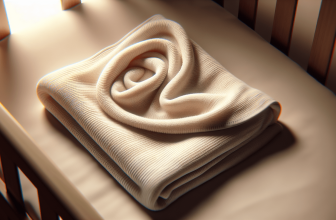You’re in a quiet room, watching as the baby in your arms drifts off to sleep. Suddenly, you notice their tiny lips smacking rhythmically, as if they’re tasting something delicious. But what exactly is causing this adorable phenomenon? In this article, we’ll explore the fascinating reasons behind why babies smack their lips while sleeping. So, grab a cup of tea, get cozy, and let’s unravel the mysteries of this endearing behavior together.
Normal Sleep Behavior
Mouth Movements During Sleep
When it comes to observing your little one, you may have noticed some interesting movements and behaviors while they sleep. One common phenomenon that many parents observe is lip smacking. While it may be concerning at first, it’s important to understand that lip smacking during sleep is actually a normal sleep behavior for infants. In this article, we will delve into the reasons behind this behavior and provide you with a comprehensive understanding of why babies smack their lips while sleeping.
Lip Smacking as a Common Phenomenon
Lip smacking is a common occurrence during sleep, especially in infants. It is characterized by repetitive movements of the lips, which may range from gentle smacking to more pronounced movements. This behavior can be seen in both newborns and older babies, and is typically harmless. In fact, lip smacking is believed to be a natural part of the sleep-wake cycle and is often associated with the different stages of sleep, particularly during Rapid Eye Movement (REM) sleep.
Oral Motor Development
Exploration of the Mouth
From the moment they are born, babies are curious beings, constantly exploring the world around them. This curiosity extends to their own bodies, including their mouths. Exploring the mouth is a crucial part of oral motor development, as it helps babies gain a better understanding of their oral sensory environment. Through mouthing and sucking on their fingers, hands, and even their lips, babies learn about different textures and sensations, which aids in the development of their oral motor skills.
Development of Sucking and Swallowing Skills
As babies grow and their oral motor skills develop, they begin to develop the ability to suck and swallow. Sucking is a vital skill for infants, as it allows them to obtain nourishment from breastfeeding or bottle-feeding. Through the act of sucking, babies learn to coordinate their muscles and create a rhythmic motion that allows them to effectively extract milk from their source of nourishment. Swallowing, on the other hand, ensures that the milk or formula they consume travels from their mouth to their stomach, providing them with the necessary sustenance.
Oral Sensory Stimulation
The mouth is a sensitive area that is rich in sensory receptors. By engaging in oral motor activities, such as sucking on their lips or fingers, babies receive sensory stimulation in their mouths. This stimulation helps to calm and soothe them, making it a self-soothing mechanism that aids in relaxation and comfort. Lip smacking, therefore, can be seen as a way for babies to satisfy their need for oral sensory stimulation during sleep.
Dreaming and Sleep Patterns
REM Sleep and Dreaming
Sleep is a fascinating process that plays a vital role in an infant’s growth and development. One of the key phases of sleep is Rapid Eye Movement (REM) sleep, during which dreaming occurs. REM sleep is characterized by rapid eye movements, increased brain activity, and muscle relaxation. It is during this stage that lip movements and other body movements, such as twitching or jerking, may occur. These lip movements are believed to be associated with the dream content that babies experience during REM sleep.
Lip Movements during REM Sleep
Lip movements during REM sleep are not exclusive to babies, as they can also occur in adults. These movements may manifest as lip smacking or pursing, where the lips appear to be actively engaged in some form of movement. While the exact reasons behind these lip movements are still not fully understood, it is believed that they are a result of the brain’s communication with the oral muscles during sleep.
Signs of Discomfort or Hunger
Potential Hunger Cues
Sometimes, lip smacking during sleep may indicate that your baby is experiencing hunger or discomfort. Babies have different ways of communicating their needs, and lip smacking can be one of the cues they use to express hunger. If your baby is smacking their lips while sleeping and it is accompanied by other hunger cues such as rooting or sucking motions, it may be a sign that they are ready for a feeding.
Uncomfortable Sleeping Position
In some cases, lip smacking during sleep can be a response to discomfort caused by an uncomfortable sleeping position. Babies may adjust their lip movement or engage in self-soothing behaviors, such as lip smacking, to try and alleviate their discomfort. If you notice your baby consistently smacking their lips in a particular sleeping position, it may be worth exploring alternative sleeping positions or adjusting their current position to ensure their comfort and promote a restful sleep.
Infant Reflexes
Rooting Reflex and Lip Movements
One of the primitive reflexes seen in newborns is the rooting reflex. This reflex is triggered by gentle stimulation on the baby’s cheek or mouth area, causing them to turn their head in that direction and open their mouth in preparation to suck. The rooting reflex and lip movements are closely connected, as the reflex itself involves movements of the lips and mouth. It is not uncommon for babies to exhibit lip smacking as a part of their rooting reflex, especially during sleep.
Sucking Reflex and Lip Smacking
The sucking reflex is another important reflex that babies exhibit from birth. This reflex is triggered when a baby’s lips or mouth come into contact with a nipple or other source of stimulation. The reflex prompts the baby to begin sucking movements, which is essential for feeding. Lip smacking can sometimes be observed during the sucking reflex, as the repetitive motion of the lips may resemble a smacking motion. This is a normal part of the reflex and is nothing to be alarmed about.
Imitation and Observational Learning
Babies Imitating Facial Expressions and Movements
Babies are highly observant and are constantly learning through imitation. From a young age, they begin to imitate facial expressions and movements that they see in their environment. This includes imitating lip movements, such as lip smacking, that they observe in adults or other children. This imitative behavior is a crucial part of their social and cognitive development and helps them understand and communicate with the world around them.
Observing and Mimicking Adult Lip Movements
Babies are particularly attentive to the movements and sounds that adults make, including lip movements. It is not uncommon for babies to observe and mimic the lip movements of adults, whether it be during conversation or other activities. Lip smacking, in some instances, may be a result of babies replicating the movements they see in adults, even during sleep. This behavior is a testament to their keen observational skills and their desire to interact and engage with their caregivers.
Self-Soothing and Self-Stimulation
Lip Smacking as Self-Soothing Mechanism
Babies have a natural inclination towards self-soothing, and lip smacking can be a part of this self-soothing mechanism. By engaging in repetitive lip movements, babies may find comfort and relaxation, particularly when they are trying to transition into sleep or calm themselves down. This self-soothing behavior is a coping mechanism that helps babies regulate their emotions and find a sense of security.
Stimulating Oral Sensations for Comfort
The mouth is a highly sensitive area, and stimulating oral sensations can provide comfort and relieve stress for babies. Lip smacking can provide oral sensory stimulation, which may be soothing for infants. By engaging in lip movements, babies are able to create a pleasurable sensation in their mouths, helping them relax and feel more at ease. This can be particularly beneficial during sleep, as it aids in creating a calm and peaceful environment for babies to rest.
Possible Medical Reasons
Gastroesophageal Reflux Disease (GERD)
In some cases, excessive lip smacking during sleep may be a sign of an underlying medical condition, such as gastroesophageal reflux disease (GERD). GERD occurs when the contents of the stomach flow back into the esophagus, causing discomfort and irritation. Lip smacking can be a reflex response to this discomfort, as the baby tries to alleviate the acid reflux by stimulating their mouth and throat. If you suspect that your baby’s lip smacking is related to GERD, it is advisable to consult a healthcare professional for further evaluation and guidance.
Allergies or Sensitivities
Another medical reason that may contribute to lip smacking during sleep is allergies or sensitivities. Babies can be sensitive to certain foods, medications, or even environmental factors such as dust or pet dander. These sensitivities can cause discomfort and irritation, which may manifest as lip smacking during sleep. If you notice that your baby’s lip smacking is accompanied by other allergy symptoms, such as a rash or difficulty breathing, it is important to seek medical attention to determine the underlying cause and appropriate treatment.
When to Consult a Doctor
Persistent or Aggressive Lip Smacking
While lip smacking is generally considered a normal sleep behavior in babies, there are instances when it may warrant a visit to the doctor. If your baby’s lip smacking becomes persistent or aggressive, it is advisable to consult a healthcare professional. This is particularly important if the lip smacking is accompanied by other concerning symptoms, such as difficulty breathing, excessive drooling, or changes in feeding patterns. A healthcare professional can assess your baby’s overall health and provide guidance or recommend further evaluation if necessary.
Other Abnormal Sleeping Behaviors
In addition to lip smacking, it is essential to pay attention to other abnormal sleeping behaviors your baby may exhibit. If you notice any sudden changes in your baby’s sleeping patterns or if they display unusual movements or behaviors during sleep, it is important to consult a healthcare professional. This includes behaviors such as frequent awakenings, intense crying or restlessness during sleep, or difficulty falling asleep and staying asleep. A healthcare professional can evaluate your baby’s sleep behavior and provide appropriate guidance or refer you to a sleep specialist if needed.
Conclusion
Lip smacking during sleep is a normal sleep behavior for babies and is often associated with oral motor development, dreaming, self-soothing, and observational learning. While it is generally harmless, it is important to pay attention to any persistent or aggressive lip smacking or other abnormal sleeping behaviors. By understanding the reasons behind lip smacking and being aware of potential medical reasons, you can ensure that your baby’s sleep is comfortable, healthy, and nurturing. Remember to consult a healthcare professional if you have any concerns or questions about your baby’s sleep behavior.











